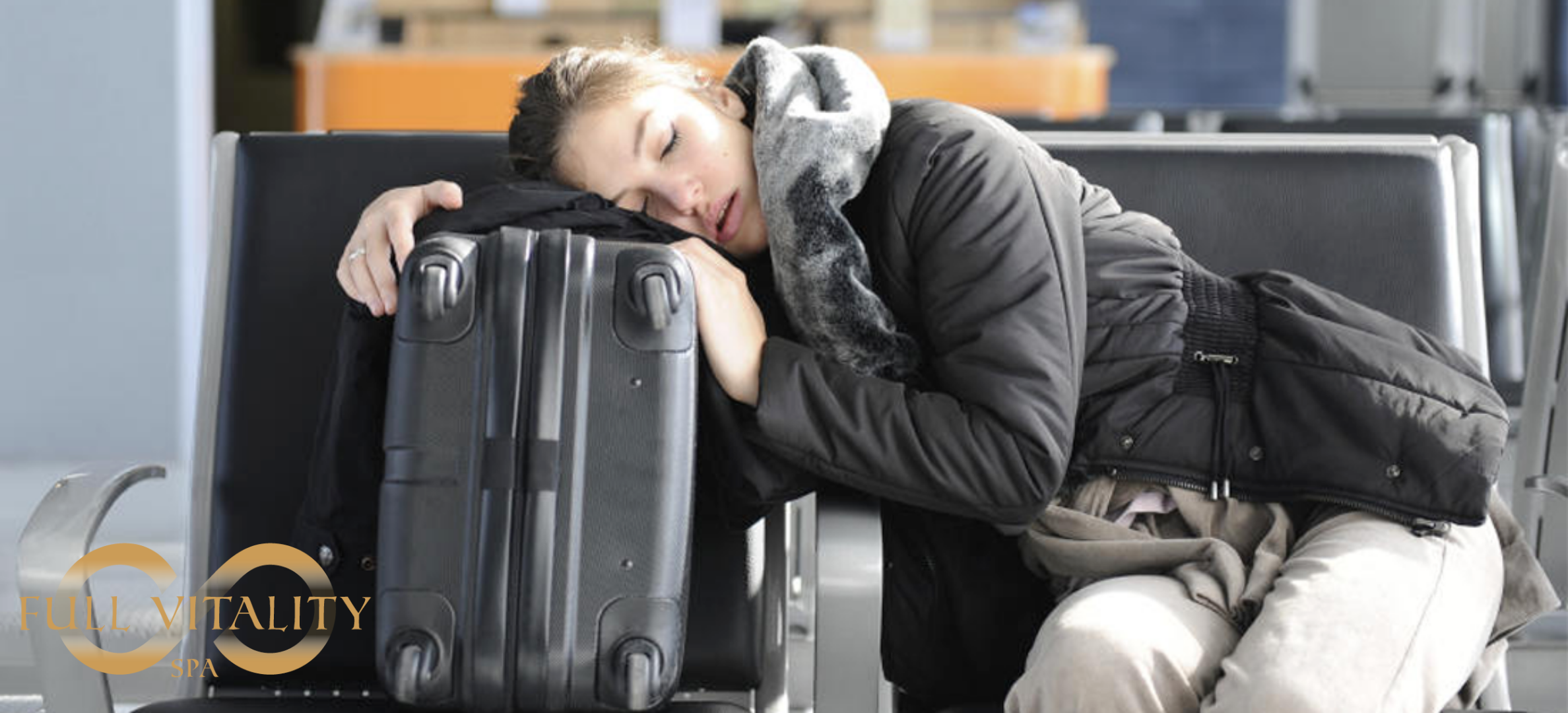Best solutions for jet lag
What Is Jet Lag?
Jet lag, also known as time zone disruption, is a temporary sleep issue that can affect anyone who rapidly crosses multiple time zones. The term “jet lag” is widely used and recognized internationally to describe the sleep disorder that occurs due to a sudden change in schedule when traveling across different time zones. Another expression for this phenomenon is “time zone discrepancy,” which is a literal translation from English. Alternatively, it can be referred to as “circadian dysrhythmia” or “desynchronosis,” which are more technical medical terms describing the disruption of the body’s biological rhythms. These terms are less common but more precise than “jet lag” or “time zone disruption”

Jet Lag Causes Explained:
- Circadian Rhythms: Our body has an internal clock known as circadian rhythms. These rhythms regulate our sleep-wake patterns. When we travel rapidly across different time zones, our circadian rhythms can become disrupted, affecting our sleep.
- Internal Clock Synchronization: Jet lag occurs because our internal clock is synchronized with the original time zone where we reside. When we travel to a location with a different time zone, our internal clock doesn’t automatically adjust to the new schedule.
- Number of Crossed Time Zones: The more time zones we cross, the higher the likelihood of experiencing jet lag. For instance, a transcontinental flight may involve crossing multiple time zones, increasing the chances of time zone disruption.
- Desynchronization Upon Arrival: Upon reaching a new destination with a different time zone, our internal clock becomes desynchronized with the local time. This can lead to sleep difficulties, fatigue, and other symptoms associated with jet lag.
In summary, jet lag is a temporary body response to schedule changes during travel. Fortunately, there are strategies to minimize its effects, such as gradually adjusting our schedules before traveling or exposing ourselves to sunlight at the new destination. I hope you find this information helpful! 😊
Let’s Use an Example to Understand Jet Lag:
Imagine you depart from New York on a flight at 4:00 PM on Tuesday and arrive in Paris at 7:00 AM on Wednesday. Your internal body clock still believes it’s 1:00 AM. Consequently, you feel ready for sleep while the Parisians are waking up. It takes a few days for your body to adjust fully.
Jet lag occurs due to this misalignment between your internal clock and the local time at your destination. As you travel across multiple time zones, your body needs time to adapt to the new schedule. Symptoms may include fatigue, difficulty concentrating, and changes in mood. Fortunately, there are strategies to minimize the effects of jet lag, such as gradually adjusting your sleep patterns before travel or managing exposure to light at your destination
I hope this explanation helps clarify what jet lag is! 😊

Jet lag solutions

What are the best solutions for jet lag?
- Adjust Your Schedule Before Departure: Modify your meal and bedtime schedules to align more closely with the time zone of your travel destination.
- Set Your Watch Immediately Upon Departure: As soon as you leave, adjust your watch to the local time at your destination and act as if you already live in the new time zone.
- Get a Good Night’s Sleep Before Flying and Avoid Long Naps: Try not to take naps longer than two hours after a long flight and early-morning arrival.
- Stay Hydrated: Drink plenty of water during the flight and continue to stay hydrated after landing.
- Avoid Arriving at Night and Seek Sunlight: Opt for a flight that arrives during daylight hours. This will help you stay awake and explore if the sun is shining.
- Limit Alcohol Intake: Alcohol can exacerbate fatigue and cause dehydration, making it harder to overcome jet lag.
- Avoid Sleeping Pills: They won’t effectively combat jet lag and may lead to confusion upon arrival.
- Walk and Exercise: After sitting on a plane for hours, walking is a great way to stay alert and do some sightseeing.
- Say No to Coffee and Energy Drinks: High-caffeine beverages can disrupt your sleep and prolong the recovery time from jet lag.
- Eat Well: Opt for healthy foods such as fruits, vegetables, oily fish, and nuts to mitigate the effects of disrupted sleep patterns1.
- Book a Revitalizing Massage Upon Arrival: Platforms like Full Vitality send therapists to your hotel or vacation residence within an hour of your airport arrival. Arrive at your hotel, receive your massage, and enjoy your destination.
Remember that these strategies can help minimize the impact of jet lag, allowing you to adapt more quickly to your new time zone. Safe travels! 😊




